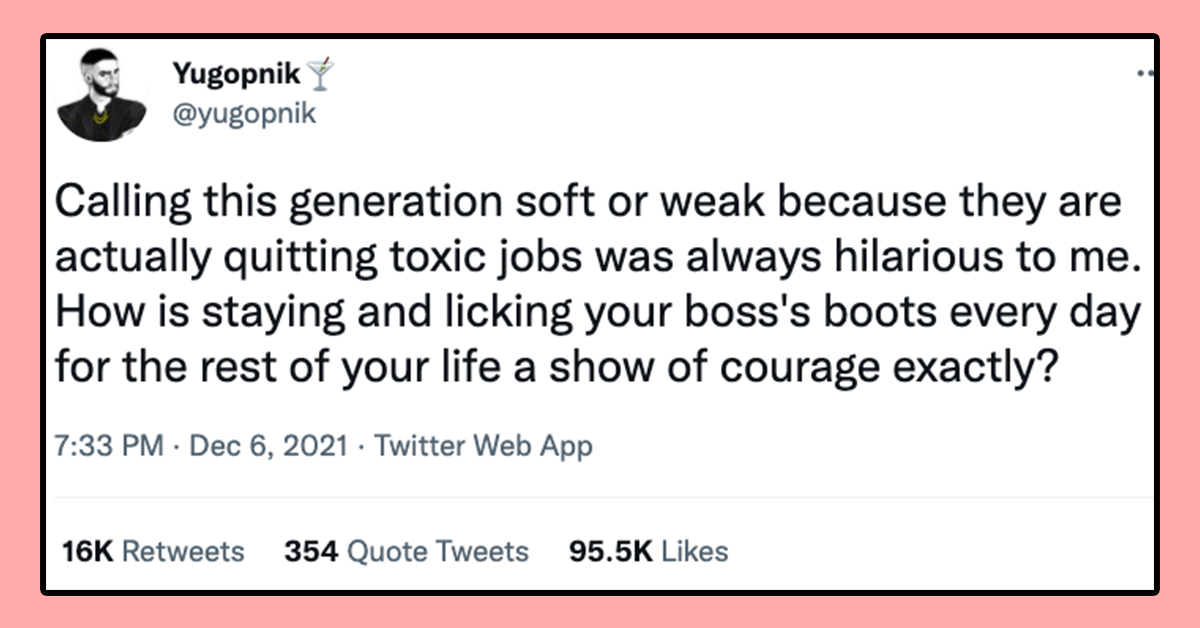Viral Tweet Starts Argument About Millennials & Gen Z Being ‘Weak’ For Quitting Toxic Jobs
A tweet from early this month has gone viral after sparking a debate on whether quitting a terrible job, as many people have been doing this lately, is courageous or a sign that today’s younger generations are “soft” and “weak” because we won’t put up with brutal exploitation anymore.
Twitter user Yugopnik pushed back on the idea that the many thousands who are quitting work either for better jobs or just because there’s no point working for pay that won’t allow you to live independently anyway are “weak” and suggested that people who stay in awful jobs are the soft ones.
“Calling this generation soft or weak because they are actually quitting toxic jobs was always hilarious to me,” he wrote. “How is staying and licking your boss’s boots every day for the rest of your life a show of courage exactly?”
“Unless you have no other choice and have to work whatever you can to feed yourself or your family,” he continued in a follow-up tweet. “That Is pure unadulterated courage.”
Quitting a job to pursue a dream or just because it sucks has actually been the subject of many films in which the quitter protagonist is framed as brave or bold for doing so, and quitting is very often a risk taken by those choosing the new and potential-laden over what’s familiar.
However, as so many young people quit awful and exploitative jobs in favor of literally anything else in a phenomenon dubbed as “The Great Resignation,” those who benefit from that exploitation have pushed back with the same old lines used to keep the youth in their place for centuries.
Literal signs of this have popped up in many establishments where young, underpaid and badly treated workers have quit in droves only for the owners to replace them with sad signs claiming that the store is closed because “no one wants to work anymore.” But is it really a bad thing that people are refusing to lie down and take whatever terrible paycheck, ridiculous hours, or general abuse their bosses feel like raining down upon them because they know they can get away with it?
Young people have been quick to push back on this idea every time it arises lately, identifying it as a way for the bosses to try and shame those running the shops and making the money for them into accepting poor treatment and settling for less rather than fighting back.
The results speak for themselves—an explosion of strikes and the rise of the Antiwork subreddit as people continue to quit demonstrates that those currently taking over the workplace are not falling for the old manipulation tactics.
You can also see the failings of this kind of thinking via the fact that many companies, including those notorious for underpaying and exploiting their workers, are now advertising higher wages and better benefits as they struggle to hire and retain workers.

